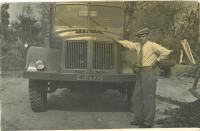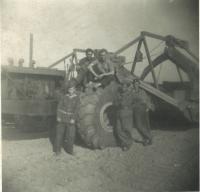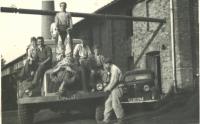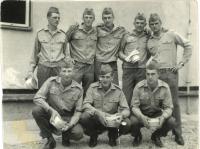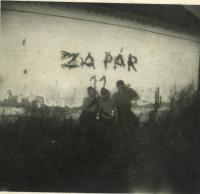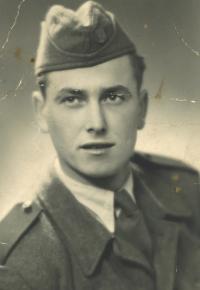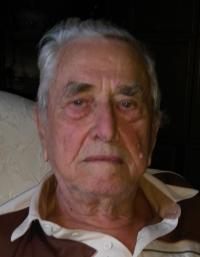We were lucky we could see the sun

Stáhnout obrázek
Mr. František Vaczula was born on December 11, 1929 in the village of Veľké Úľany as the oldest of 5 children. František comes from a poor family of Hungarian origin. He spent his childhood in the village of Ovsište (currently part of Bratislava) occupied by German invadors from October 1938. According to the political developments at the time, young František had to switch from his Hungarian primary school to German, and later to Slovak schooling. Due to having witnessed a rampage of Guardsmen (members of the Slovak Nazi organization Hlinkova garda) in the streets of Bratislava as a young boy, František feared speaking anything other than the Slovak language. In 1946, because of the reaction of the Czechoslovak Government to the Vienna arbitration of 1938, František´s family had to move out of their home and resettle in Moravia. Only in 1949, as part of the forced acceptance of Slovak ethnicity, the re-Slovakization process, the family was allowed to move back home as long as they accepted their new nationality. Because František´s father refused, he was sent to a labour camp in Jáchymov mines for three years. The rest of the family met with an unpleasant surprise: their house had been occupied by a high commissioner´s daughter and the family was to find a new home. František was experiencing a great dissapointment. He soon tried to flee the country but was arrested and sentenced to 5 months in prison. In 1950, as a subversive, he commenced his military service in the Labour camp batallion (PTP) in Svatá Dobrotivá for 31 months. He worked hard in different places, mostly helping with the building of aiport foundations, Líně u Plzně being the most toilsome. After the service, František worked as a truck driver and later as a bus driver for the rest of his career. For breaking the record in number of kilometers without an accident, František won several awards. He was never a member of any political party. Today, Mr. Franišek Vaczula lives with his family near Bratislava.
